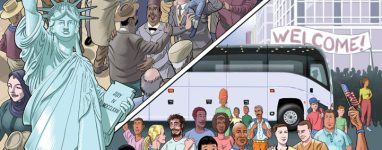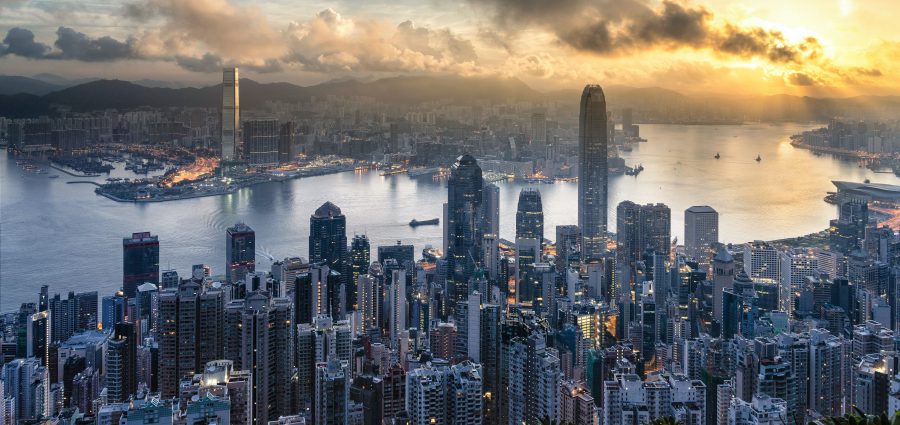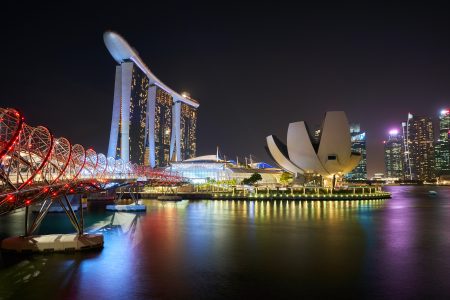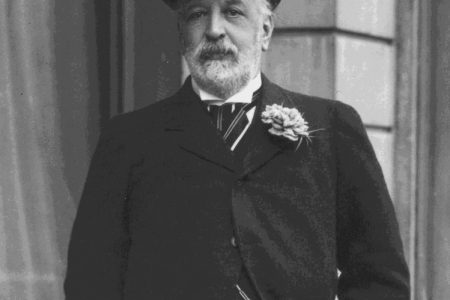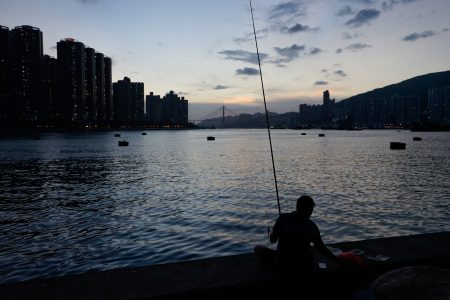The United States at the end of last week issued a warning that the situation in Hong Kong had worsened and promised more sanctions on the city. President Biden said the situation in Hong Kong was deteriorating.
The Situation in Hong Kong Is Not Deteriorating
From 2014 to 2020 Hong Kong experienced civil disorder of increasing intensity. Initially the city witnessed legitimate peaceful demonstrations which became known as the umbrella movement. Over time the peaceful demonstrations morphed into increased violence. The real objective became independence, which China would never allow. At the height of the violence, metro stations were being taken over and vandalized, major shopping malls were also taken over and vandalized and the city’s major universities were occupied and looted. Hong Kong’s legislative chamber (LegCo) was occupied and trashed. (Americans are horrified at the January 6 takeover of the US Capital but cheered on the take over of the Hong Kong legislative facility. Why?) In short the city became totally dysfunctional. The local police were becoming totally overwhelmed. The Hong Kong legislature was unable to pass a security law as was required under Hong Kong’s Basic Law. The Basic Law is Hong Kong’s constitution and was based on the Sino British Joint Declaration, the treaty under which Hong Kong was returned to China.
Under the circumstance of total disorder, the Central Government stepped in and passed a security law for Hong Kong. When this law was passed the Hong Kong police were able to regain control. No Chinese police or troops joined in the restoration of order. The HK government has taken measures to ensure that going forward the HK legislature will be functional and not anti-China. Yes, as in most other Asian countries such as Singapore, there have been some restrictions placed on the press. But the HK internet remains free. Admittedly, if the Hong Kong government goes too far it will kill the golden goose that is Hong Kong. But it was never realistic that China would allow Hong Kong to become independent or become a hotbed of anti-China activity.
Overall the city has become a peaceful and functioning place. Under the British there never were any elections. Before the Handover in 1997, the British never held a plebiscite to ascertain the wishes of the Hong Kong populace. The bulk of the territory’s land was under a ninety nine year lease from China. The lease was up in 1997. But the areas where the bulk of Hong Kong’s people lived, i.e. Hong Kong Island and the Kowloon Peninsula, were held by the UK in perpetuity. There was no lease. Legally, the British did not have to hand Hong Kong Island and the Kowloon Peninsula back.
As the colonial power which signed the Sino-British Joint Declaration, it should be the responsibility of Great Britain to pressure China if it thinks the Chinese are violating the Declaration. The United States is poking its head where it does not belong. Dog chases mouse, the Chinese might say.
Hong Kong Has a Bright Future As a Financial Center
I’ll start with the caveat that Hong Kong has a bright future as a financial center provided the US does not go all out to destroy it. It has become clear that neither the US nor China want Chinese companies to IPO in the United States. Hong Kong, with its British law and use of English, its Stock Connect program with China to tap the enormous Chinese savings pool and its rock-solid dollar-based currency, is the perfect venue to host Chinese IPOs. The city is already a major banking center for Asia. And to add an international flavor, the stock exchange now has an Argentine CEO. Given all the publicity about unhappy people leaving Hong Kong, it is worth noting that the widely followed Centaline index of HK house prices never crashed and is now going up! If everyone in Hong Kong is packing their bags, who is doing the buying?
A thriving Hong Kong is not only good for China. It is good for all of Asia.
More Sanctions on Hong Kong Are Another Chapter in the American Race War With China
The Caucasian West has never been able to appreciate Asians for who they are. Leland Stanford, in his 1862 California Gubernatorial Inaugural Address, summed the prevailing Western view of Asians:
To my mind it is clear, that the settlement among us of an inferior race is to be discouraged, by every legitimate means. Asia, with her numberless millions, sends to our shores the dregs of her population…There can be no doubt but that the presence of numbers among us of a degraded and distinct people must exercise a deleterious influence upon the superior race… It will afford me great pleasure to concur with the Legislature any constitutional action, having for its object the repression of the immigration of the Asiatic races.
(It turned out that Stanford later had to admit that Chinese workers had made a huge contribution to the construction of the transcontinental railroad, the profits from which helped fund Stanford University.)
Most Americans simply cannot believe that the bulk of China’s population might not view the Chinese Communist Party as the oppressor. Biden can simply slap sanctions on Hong Kong and China and most Americans will automatically approve. But why would the Chinese hold this negative view of the CCP? Since 1980 probably a half billion (or more) have been brought out of poverty after over 100 years of wars, foreign invasions and famine. The discipline and entrepreneurial drive of the Chinese people have been unleashed. The excesses of the Mao years are a nightmare best forgotten. The Chinese today never had it so good. Americans cannot appreciate that the Chinese have a four thousand year history of rule by autocratic emperors. That the Chinese culturally and perhaps even genetically are adjusted to this system (behavioral genetics is just emerging as a science).
In the late1940’s India became independent and China was taken over by the CCP. The countries were at similar levels of poverty. Today Chinese GDP /capita is almost five times that of India’s. The Chinese have overcome the stumbles of the Mao years. The Chinese view democratic India as a mess not to be imitated. Incidentally, a relatively weak democratic India creates a power imbalance in Asia.

